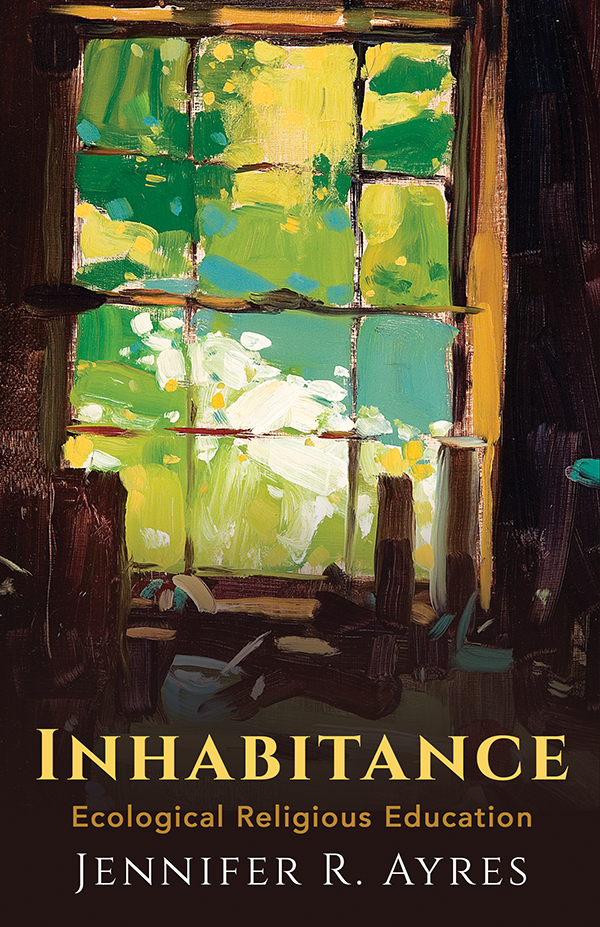Product desciption
Inhabitance Ecological Religious Education Ayres Jennifer R by Ayres, Jennifer R.; instant download after payment.
Jennifer Ayres is Associate Professor of Religious Education at Candler School of Theology and Emory University, where she also directs the Doctor of Ministry Program. She is also the author of Good Food: Grounded Practical Theology (2013).
"Ayres provides a fresh take on an urgent topic. This important book fills a gap in the resources available for religious educators, ministers, and other leaders in faith communities for whom deep concern about ecological destruction is a theological and moral issue. By placing an understanding of ethics and ecology into play with knowledge about how such learning happens, Ayres offers a path away from despair over ecological destruction and toward faithful action grounded in love."-Joyce Mercer, Professor of Pastoral Care and Practical Theology, Horace Bushnell Professor of Christian Nurture, Yale Divinity School
"In this astonishingly perceptive and wise book, Jennifer Ayres reaches out to people who have become alienated from the natural world, disoriented by loss of their home places, or immobilized by ecological grief. Through the recovery of the idea of inhabitance she guides her readers to an authentic way of living in place that is neither nostalgic nor utopian but deeply life-giving and theologically profound. This book is a vital resource for ecological theology in the twenty-first century."-Carol A. Newsom, C. H. Howard Professor of Old Testament, Candler School of Theology, Emory University
"Inhabitance: Ecological Religious Educationis a solid, needed work and a gift to the church as a pedagogical agent of our ecological vocation. It includes a gratifying array of parish practices coupled to on-the-ground examples and all set within Christian resources and wisdom."-Larry Rasmussen, Reinhold Niebuhr Professor Emeritus of Social Ethics, Union Theological Seminary, New York City
Like other creatures, human beings are inhabitants of their ecosystems. But are humansgoodinhabitants? According to Jennifer Ayres, the way of inhabitance is stubbornly elusive. The work of understanding, loving, and tending God's world is constrained by patterns of alienation, exploitation, and systemic neglect and injustice.
Faced daily by evidence of ecological death and decay, Ayres determines that this important work of inhabitance is constantly threatened by ecological despair. Ecological despair stems from alienation from the natural world, acute and generational grief resulting from loss of home places, and, for many, an overwhelming guilt at having been complicit in the planet's suffering. InInhabitance: Ecological Religious Education, Ayres proposes a solution to this increasing alienation: the way of inhabitance. Just as other animals live and thrive within their ecosystems, so do humans live in a habitat created, sustained, and loved by God. This God perpetually invites us to become better inhabitants.
Many religious communities already cultivate inhabitance as a way of life, work that they consider to be central to their deepest theological commitments.Inhabitanceexamines a diverse array of such practices that foster more intentional engagement with the particular places in which people live. Ecological religious education, Ayres demonstrates, nurtures a disposition of loving commitment toward God's creation.
Inhabitancedemands a willingness to love other beings and a willingness to courageously encounter the human and ecological suffering of the world and be fully present to that suffering. And even as humans live more lovingly, courageously, and attentively within their particular places, their lives are opened up to the deepest sources of human well-being-for when God's world around us flourishes, so do we.
Introduction: To Inhabit the World
Part One
1. Longing for Home
2. Becoming Inhabitants
Part Two
3. Religious Education for Inhabitance
4. Educational Practices for Inhabitance
Part Three
5. Located, Dislocated, Relocated
6. Embracing Vulnerability
Conclusion: Christian Hope in the Anthropocene
Like other creatures, human beings are inhabitants of their ecosystems. Faced daily by evidence of ecological death and decay, Ayres determines that this important work of inhabitance is constantly threatened by ecological despair. Ecological despair stems from alienation from the natural world, acute and generational grief resulting from loss of home places, and, for many, an overwhelming guilt at having been complicit in the planet's suffering. InInhabitance: Ecological Religious Education, Ayres proposes a solution to this increasing alienation: the way of inhabitance. Just as other animals live and thrive within their ecosystems, so do humans live in a habitat created, sustained, and loved by God. This God perpetually invites us to become better inhabitants. Inhabitancedemands a willingness to love other beings and a willingness to courageously encounter the human and ecological suffering of the world and be fully present to that suffering. And even as humans live more lovingly, courageously, and attentively within their particular places, their lives are opened up to the deepest sources of human well-being-for when God's world around us flourishes, so do we.


